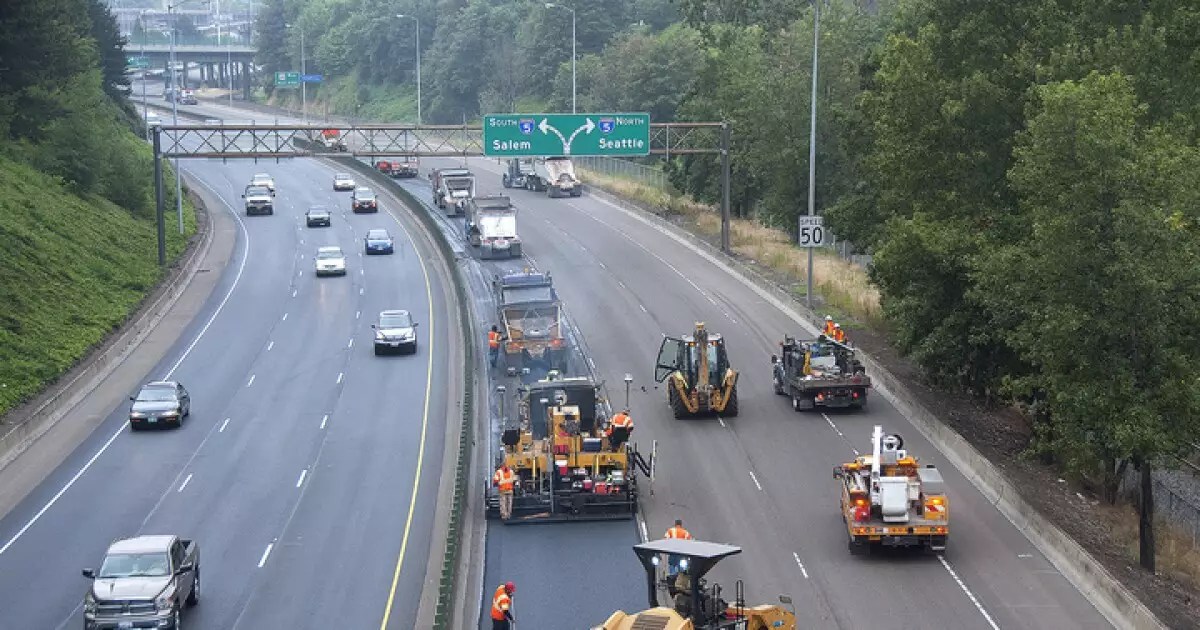The recent passage of House Bill 2025 in Oregon represents a significant moment in the ongoing debate about public funding, infrastructure needs, and taxpayers’ burdens. With a staggering potential increase in taxes and fees amounting to $14.6 billion over the next decade, this bill has ignited a firestorm of controversy. Lagging road conditions, crumbling bridges, and a consistent public outcry for improved transportation systems have made it essential for lawmakers to address these tangible issues. However, the proposed solutions raise critical questions about efficiency, accountability, and the balance of fiscal responsibility.
The Case for the Bill
Proponents of House Bill 2025 tout it as a “transformative investment” aimed at renewing Oregon’s failing infrastructure. They argue that the funds generated through the tax increases will facilitate much-needed repairs, improve safety for drivers and pedestrians, and establish more transparency in the Oregon Department of Transportation (ODOT) spending. Democratic Senator Chris Gorsek’s comments encapsulate the supporters’ viewpoint: the bill promises to address pressing infrastructure issues that have long been neglected. However, this rhetoric often overlooks a fundamental problem—will pouring money into the system truly translate into effective change?
The underlying issue with arguments for such monumental tax increases lies in ever-growing skepticism surrounding government efficiency and financial management. Increased funding does not guarantee that the money will be managed wisely or even allocated to priorities that truly meet public needs. With previous instances of bureaucratic inefficiency in mind, one must question whether Oregonians are making a wise investment or simply feeding an insatiable government apparatus.
Public Sentiment: A Divided Community
Despite efforts by proponents, a significant portion of the Oregon populace remains unconvinced. Polls indicate that an overwhelming 61% of residents oppose the bill, reflecting a deep-seated distrust in the ability of government entities to handle increased funds responsibly. This widespread skepticism is evidenced by testimonies from those who voiced their concerns directly to lawmakers—the disconnect between policy aims and public sentiment could not be clearer.
Critics such as Republican Representative Shelly Boshart Davis have branded this measure as a political “scheme,” arguing that the Democrats are pushing through a transportation tax wish list irrespective of the public’s displeasure. Her assertion that the proposal is nothing more than a giant tax hike does resonate with many in the community who feel as though they are being coerced into funding a system that has not earned their trust.
A Question of Priorities
Republican critics have attempted to introduce an alternative solution that would fund vital transportation needs without resorting to tax increases. Their proposal seeks to reallocate existing climate relief funds for transportation projects, embodying a focus on accountability while addressing the pressing issues at hand. The glaring contrast between the two approaches raises fundamental questions regarding state priorities. Should taxpayer money be harvested aggressively for new funding mechanisms, or should we employ creativity and strategic foresight with already available resources?
This contentious backdrop highlights a broader concern about governmental priorities. Shouldn’t the state’s primary focus be on maintaining existing infrastructure rather than expanding funding for new initiatives? Oregonians are simply demanding value for their taxes and express a longing for efficient services without the additional financial burden.
The Legislative Maneuvering
The political drama surrounding House Bill 2025 did not stop at the mere disagreement over financial strategies. Reports have indicated that Senate President Rob Wagner removed a fellow Democrat from the Joint Transportation Reinvestment Committee to secure support for the bill within the committee—a move that raises alarm bells about transparency and political maneuvering. This incident only amplifies the concerns highlighted by dissenting voices about the legislative process and the genuine representation of public interest within it.
In an environment where trust in governance is eroding, actions that appear to be power plays will only serve to infuriate constituents. It is crucial for lawmakers to maintain integrity and foster an atmosphere where genuine deliberation and compromise reign over partisan manipulation.
The Future of Transportation Funding in Oregon
As House Bill 2025 heads toward a full House vote, the debate surrounding its implications will only intensify. The discussions will reveal not just the future of Oregon’s roads and bridges, but also the extent to which citizens are willing to engage in a dialogue about their governance. While the critical infrastructure needs certainly demand attention, the real challenge lies in navigating a path that garners genuine public trust and support without coercing taxpayers into financing questionable schemes cloaked in the guise of urgent necessity.


Leave a Reply